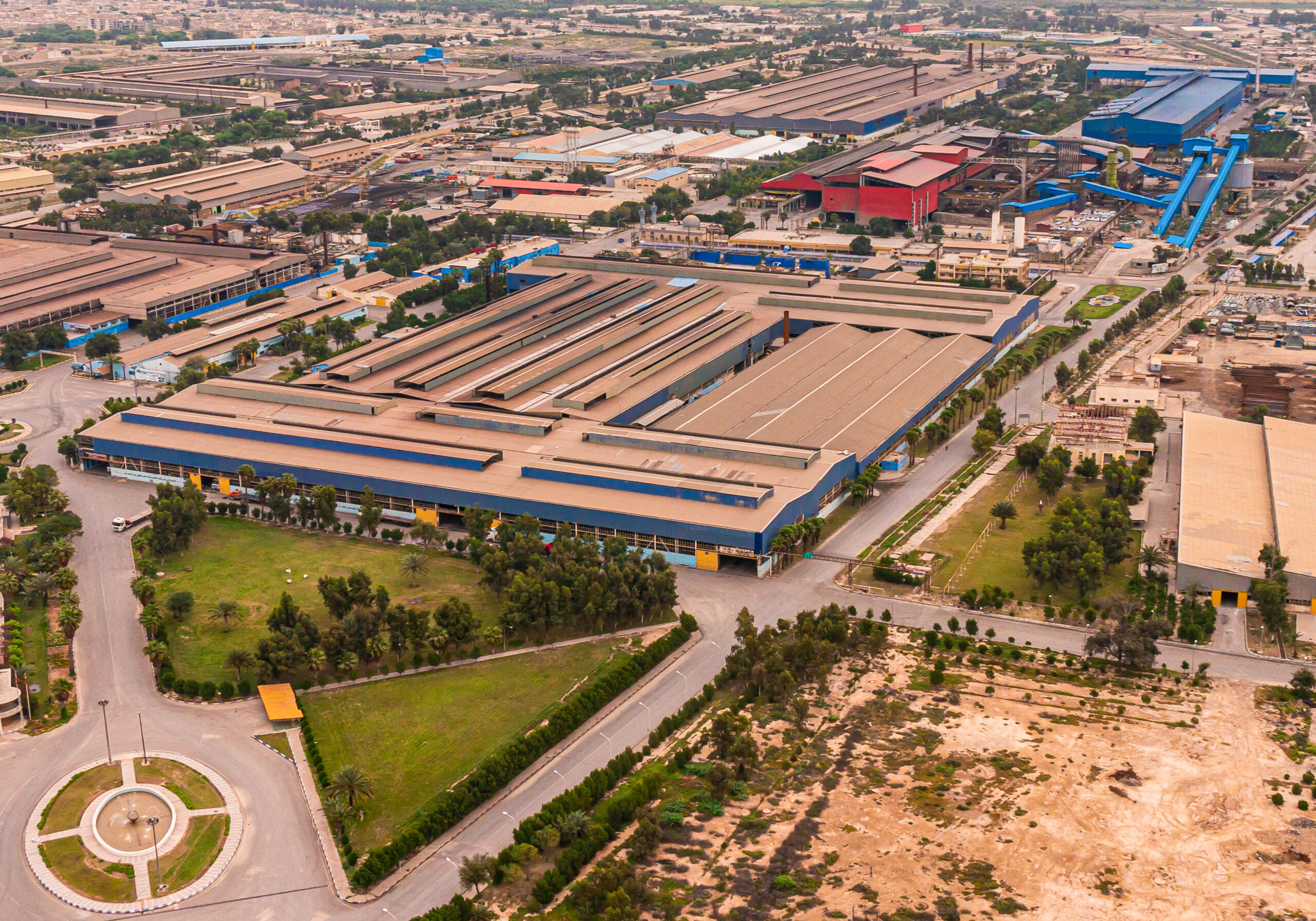
In 1342, the country’s first steel rolling mill was established in the city of Ahvaz in order to produce all types of plain, ribbed and corner bars.
Production lines with the installation of equipment and assembly of machines with an annual capacity of 65 thousand tons were launched in 1346 and gradually other workshops and processes were added to it. After the glorious Islamic revolution, this industrial complex with a variety of lines and products from rolling and steelmaking processes was named after Iran’s National Steel Industrial Group.
With the implementation of development and reconstruction plans of production lines during the years 1371, 1383 and 1385, the production capacity increased and the quality of the product, the exploitation and production control systems were improved.
Now, this huge complex with an annual capacity of 1,435,000 tons of steel products and 430,000 tons of steel ingots is one of the important exporters of steel products while providing a major part of the country’s needs.
The employees of Ahvaz National Steel Group have chosen the following ethical principles and values as their ethical charter in order to fulfill their organizational role and improve effectiveness and efficiency and provide a dynamic and healthy environment.
Adhering to moral values and observing the principles of commitment, honesty, trust, openness and sincerity
Use appropriate clothing according to the general culture of the society
Observance of respect, politeness, sobriety and good behavior towards colleagues
Promoting administrative health and maintaining confidentiality and keeping organizational secrets
Attending work on time and observing work discipline
Correct use of powers and responsibilities in every organizational level by observing professional ethics for the excellence of the organization
Optimum use of the company’s resources and facilities and avoiding extravagance by observing wise and compassionate savings
Respecting the rights of colleagues and creating a culture of mutual trust
Responsibility and adherence to the culture of accountability, commitment to accountability for duties
We eagerly listen to the opinions and views of our clients and use their criticism and suggestions regarding the modification of behavior and changing the way of doing work according to the regulations.
